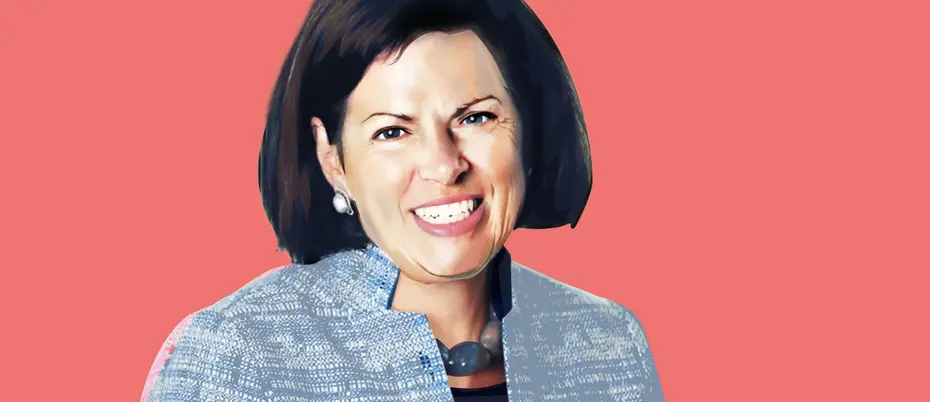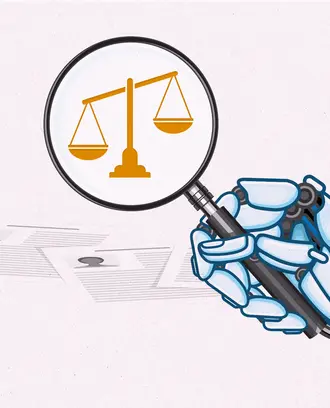Hiring
To evaluate ideas, this CEO looks for trusted champions
A strong indicator of a good idea? When one of your best people doesn’t let it go.
When Martha Samuelson talks ideas, she’s all about action and collaboration. Samuelson is CEO and chairman of Analysis Group, the global economics consultancy with Boston roots and experience in litigation support, intellectual property, securities, health care, and other sectors. She is a strong believer in looking to her partners, and indeed anybody in the firm, not only for ideas, but to stand behind those ideas if they truly believe they are worth pursuing. The best ideas will have champions, she said – a clear sign the ideas are worthwhile.
So while she doesn’t talk about idea generation in lofty thought-leader speak, the MIT Sloan alumna was game to answer our questions about working with ideas.
What inspires you?
What's important to me about this business, and in fact my life, is that I really have wanted to help people make their lives better, whether it’s progress in their careers or volunteer with a non-profit. That turns out to be incredibly important to me. I also wanted to be part of an organization like Analysis Group where the whole is bigger than the sum of the parts. Those two things are my inspiration and motivation, and are the things I'm trying to accomplish here. I think lots of people just want to be successful; lots of people want to make a lot of money; lots of people want to have their business be very well known. Those are wonderful byproducts, but they aren't the things that really energize me or motivate me.
Who inspires you?
I find myself enormously inspired by Nancy Pelosi. I feel like she's a person who is really doing something important in the world. But another aspect of her, that I have become very aware of in spending time with her, is that her success is dependent upon having other people succeed. That’s why she's where she is. She gets other people elected and she helps other people be effective. She's only successful if other people are successful. That's in addition to everything else she's doing as a fearless leader for the planet, and I find it very inspiring and motivating.
Where do you get ideas?
Analysis Group is truly a partnership. That's the whole being bigger than the sum of the parts. To some extent I expect the partners to be coming up with ideas, and they are, but a really good idea can come from anyone in the firm. I don't think of ideas or important initiatives as coming from the top down. I think of them as coming from peers, or bubbling up from all parts of the firm. So I go to other people for ideas quite a bit and encourage anyone to bring ideas to me. That's an important part of our culture – one that I think is so important to our success.
How do you keep track of new ideas?
The way I keep track of ideas and the way I evaluate ideas are very connected. An idea has to make sense to me, although just as importantly, it has to have a champion who I trust to be smart, strategic, and effective. You have to have somebody who's really going to stand behind the idea and not get knocked over by setbacks. The fact is that starting a new idea is a hard thing to do anywhere, and for anybody. A champion understands this and accepts the challenge, and that is a very good indicator there’s belief in the idea and that it could be a good one.
Who do you share new ideas with?
You'd be surprised at how few decisions I make on my own. I especially value advice from my partners, more than I can say. If it's a big initiative, we'll bring it to the partners as a group and encourage debate from everyone. Recently we made a significant investment in building a data science capability. It started organically in our health care practice, and then we started seeing similar requests for this kind of resource from clients in other areas of the firm’s business, like in litigation support.
I knew it was going to be a good idea when we had several partners hold up their hands and say, “I really want to champion this activity,” and we just sort of kept going from there. It was quickly socialized with the whole partnership, and now we have a strong data science group that is thriving across the firm.
When do you know it's time to abandon an idea?
Again, I look to an idea’s champion. When the champion falls away, it usually means it’s time to move on. I can remember … we wanted to start a real options practice area, and we did. However, we weren't getting traction in the market. We just didn't have a champion who persisted and said, “I don't care, I'm still on this horse,” if you will. So I knew it was time to abandon the idea.
What was your worst idea?
I think that where I have made a mistake, it’s been looking to hire somebody outside the firm and discounting if that person would be a cultural fit with the organization. Our culture is so valuable to us in a lot of ways that really separate us from other firms. Occasionally, I've brought somebody into the firm where some part of my brain knew that they were not a cultural fit, but I so admired some other aspect of their business success — they're in a market we're not in, or they do something that we don't do. These are powerful attractions from a pure business vantage and they can lead to overlooking other aspects that are just as important. And those instances are the ones that are really costly to the organization, because those hires put the culture at risk.
What's the biggest idea you are working on right now?
Continuing to chase the moving target of having the firm grow a ton and wanting to continue to run the organization as one firm. It's incredibly important to me. So right now, we have one [profit and loss statement] for the whole firm. We don't have practice area P&Ls, we don't have office P&Ls, we don't even have official sales credits for partners. And the biggest idea I have right now is making sure that continues now that we’re 55 partners, more than 1,000 employees, and 14 offices around the world. The decision to run the firm as a single P&L is key to the one firm model, with the belief that we are better together. But with that model, a lot of decisions are made that have to feel fair to a lot of people. And so having the firm continue to feel fair to people and to continue to trust in the one-firm model is my ongoing big idea. We have lots of champions supporting this idea.
At MIT Sloan, we talk about ideas made to matter — ideas that are carefully developed and have meaningful impact in the world. In that context — what’s your idea made to matter?
Our firm’s success is grounded in doing things well, but I am grateful that we have also been lucky, and so I believe that it's important to give back. Internally, I want to be a role model for people at the firm for how you behave and what your purpose should be. And it's incredibly important to me to convey to the people who work here that, if you've been successful and lucky, you have to give back to your community.
In everything, I really try to lead by example. That's why I chair the board of Boston Medical Center. It's a hospital that's 70% government-funded. It's not a hospital for wealthy people. And I've gotten lots of my partners involved — someone else is on the board, someone is on the investment committee, someone is on the philanthropic trust. Giving back to people who have been less fortunate than you is really important in life. It matters.




